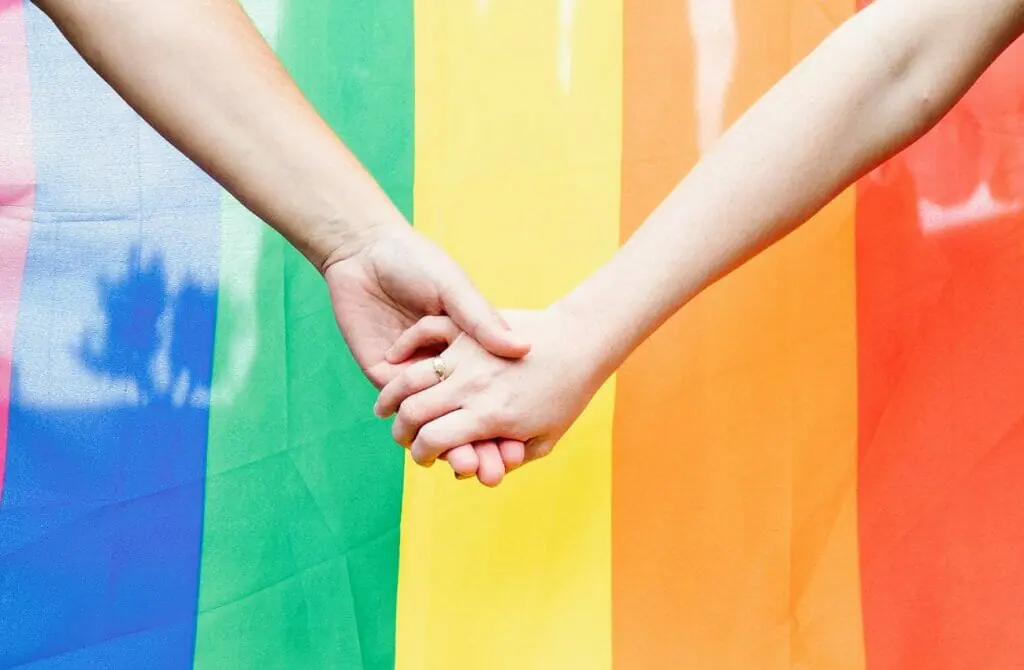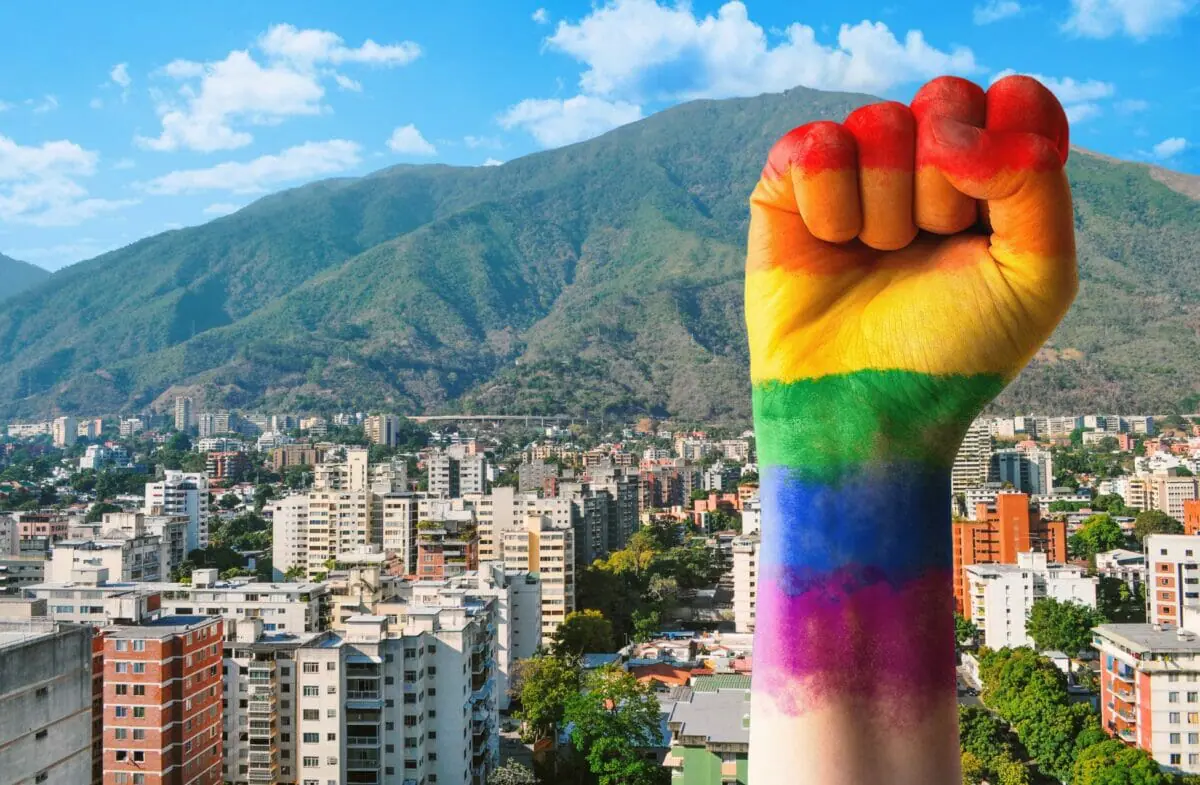Venezuela, a country with a rich cultural heritage and diverse population, has seen significant changes in the area of LGBT rights. Homosexual activity has never been punishable in the South American nation, making it, along with Bolivia, one of two countries in the region that have not criminalized homosexuality since their formation as sovereign states.
While the situation for LGBT individuals in the country has improved in some aspects, such as the legality of changing one’s gender without surgery, there are still areas where progress must be made, including marriage and the protection of military service members.
For those in the LGBT community, both locals and tourists alike, the situation in Venezuela requires attentiveness and caution, as situations can change rapidly, and information may become outdated. Individuals must seek current advice and information before traveling to ensure their safety and well-being. Staying attentive and vigilant is key, acknowledging that every country has bad actors and potential dangers.
Several LGBT advocacy groups are working diligently within the country to promote tolerance, acceptance, and the advancement of rights for LGBT people. Among these organizations is the Inter-American Commission on Human Rights (IACHR), which has called on the Venezuelan state to guarantee the rights of LGBTI individuals and develop public policies and legislation to better serve this community. As the landscape of LGBT rights in Venezuela evolves, it is essential to remain engaged and informed, both for the well-being of its residents and for visitors who venture to this vibrant nation.
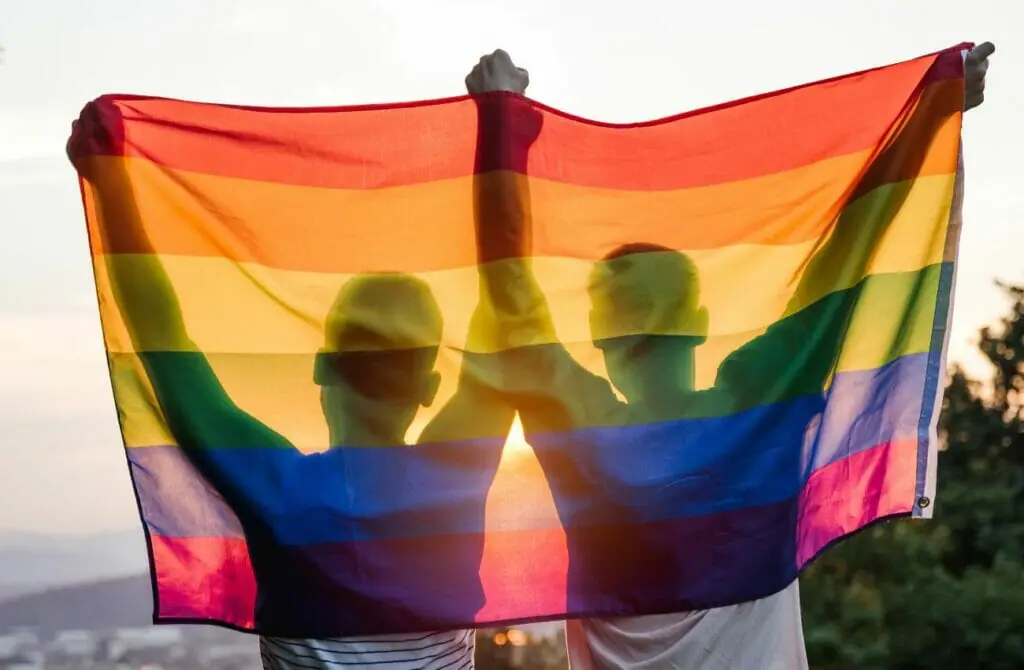

History Of LGBT Rights In Venezuela
Venezuela’s journey towards LGBTQ+ rights has been a slow and challenging process. The constitution of the country, adopted in 1999, defines marriage as a union between a man and a woman, thereby banning same-sex marriages. However, there have been some notable moments pointing towards progress in recent years.
In May 2020, the National Assembly acknowledged the unique impact of Venezuela’s humanitarian crisis on the LGBTQ+ community for the first time. This was done in recognition of the fact that members of the LGBTQ+ community are disproportionately affected by healthcare access issues. It was a powerful symbolic gesture, conveying an enthusiasm for increased progress and inclusivity in the future.
The situation regarding LGBTQ+ rights is always evolving and not just in Venezuela. Travelers and local people alike should remain vigilant and aware of the ever-changing landscape. To protect oneself and stay informed, it is essential to research accurate, up-to-date information before traveling. Laws and social attitudes can differ from place to place, so thorough research and caution are critical.
Despite the ongoing challenges faced by the LGBTQ+ community, there are advocacy groups, both locally and internationally, that are working hard to improve the situation. Connecting with these groups can provide valuable information, additional resources, and protection if necessary. By joining forces with like-minded individuals and allies, the struggle for equal rights can progress more quickly and secure lasting change for all.
In conclusion, while the road to LGBTQ+ equality in Venezuela has been slow, there are positive strides in the country, signaling that the future is brighter. Both residents and tourists should stay informed, engaged, and connected with relevant advocacy groups to ensure they can navigate the ever-evolving landscape of LGBT rights in Venezuela safely and respectfully.
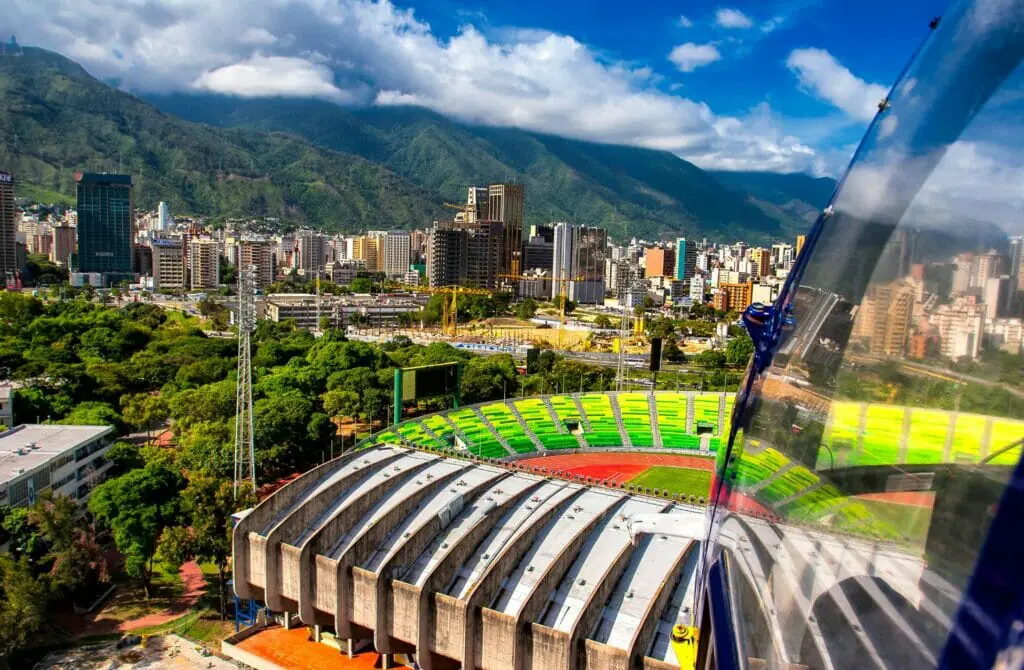
The LGBT Legal Situation In Venezuela
Venezuela’s approach to LGBT rights presents a complex picture. While homosexuality is legal, the lack of legal recognition and protection for same-sex couples and households marks a significant limitation. The constitutional ban on same-sex marriage and de facto unions since 1999 further exacerbates this gap in rights. Although there has been some progress in anti-discrimination laws, particularly in employment, these measures fall short of providing comprehensive protections for the LGBT community, affecting both residents and tourists.
In contrast to Venezuela, Suriname and Guyana have differing stances on LGBT rights. Suriname, like Venezuela, permits homosexuality but does not legally recognize same-sex unions. However, it has made strides in anti-discrimination policies, including some protections for the LGBT community, although societal acceptance remains a work in progress.
Guyana, on the other hand, presents a more challenging environment for LGBT rights. It is the only South American country where homosexual acts are still illegal, although there is ongoing debate and advocacy for change. This legal stance places Guyana at odds with regional trends toward greater acceptance and legal protection for LGBT individuals.
The comparison illustrates the diverse approaches to LGBT rights in South America, with Venezuela falling somewhere in the middle of the spectrum in terms of legal protections and societal acceptance, contrasting with Suriname’s incremental progress and Guyana’s continued legal prohibitions. This diversity highlights the importance of understanding regional variations in LGBT rights, especially for those traveling within these areas.
For tourists looking to visit Venezuela, it’s crucial to remain vigilant and exercise caution. Keep in mind that situations can change rapidly, and information might be outdated. Always seek updated advice before traveling, and network with local LGBT advocacy groups to understand the current environment more accurately.
A few steps travelers can take to protect themselves include staying informed about the latest developments on LGBT rights in Venezuela, respecting local customs and values, and researching safe spaces and welcoming resources online or through word of mouth.
Connect with organizations like the Inter-American Commission on Human Rights (IACHR), which have expressed concern for the rights of the LGBT community in Venezuela and are working to improve the situation. By networking with these organizations, you can better understand the local context and find information on any safety measures that might be needed during your visit.
In conclusion, the legal situation for LGBT rights in Venezuela is far from ideal, and progress is needed to guarantee equal treatment for all community members. With excitement for the potential improvements in the country, we encourage both tourists and locals to stay informed, exercise caution, and reach out to advocacy groups focused on promoting and protecting LGBT rights within Venezuela.
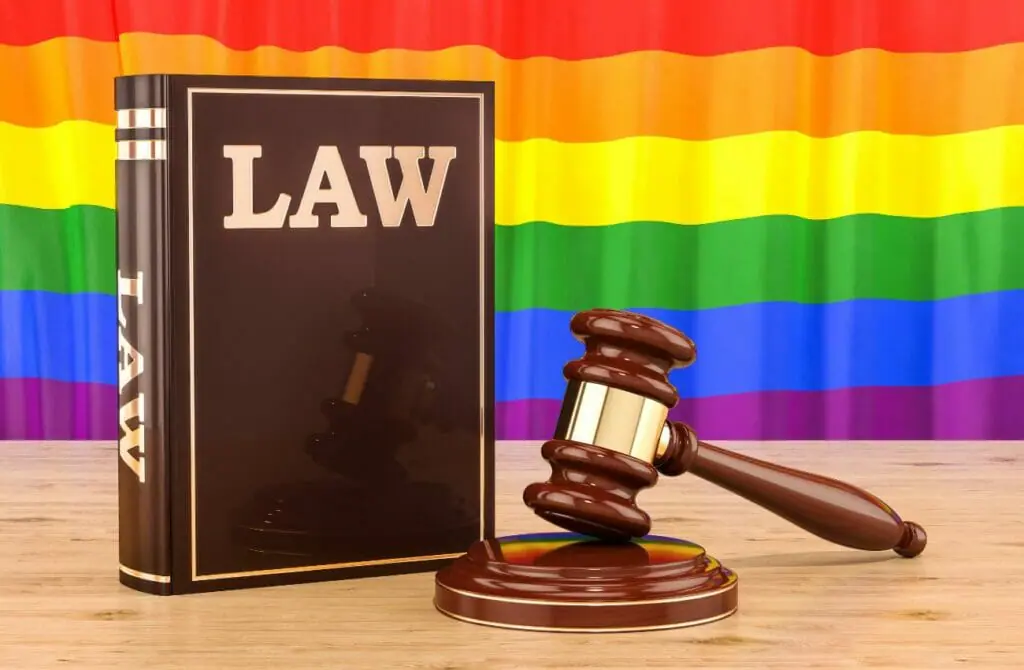

The LGBT Social Situation In Venezuela
Venezuela has never criminalized homosexuality, making it one of the few South American countries with such a stance since its inception as a sovereign state. However, the country’s ongoing economic crisis has led to a noticeable societal resistance to LGBTQ+ rights. Despite the lack of legal persecution, the day-to-day experiences of LGBTQ+ individuals in Venezuela can be challenging, with locals facing different challenges compared to tourists.
For travelers, it’s essential to remain vigilant while visiting Venezuela. The social attitudes towards LGBTQ+ people may differ significantly depending on the location, and it’s vital to stay informed about current conditions. Situations can change rapidly, and information can become outdated quickly, so seeking current advice before traveling is crucial. Be cautious, as there might be bad actors in the country who could target LGBTQ+ individuals.
Several LGBTQ+ advocacy groups are working to improve the situation in Venezuela, such as the Inter-American Commission on Human Rights (IACHR). The IACHR has called on the Venezuelan government to implement public policies and legislation to guarantee the rights of LGBTQ+ people in the country. By aligning with these groups, both locals and tourists can contribute to a more inclusive and accepting environment for all.
In conclusion, the social landscape for LGBTQ+ rights in Venezuela remains complex and variable. By staying informed, cautious, and connected to advocacy groups, both locals and tourists can better navigate this environment and help move the country towards increased acceptance and tolerance for all.
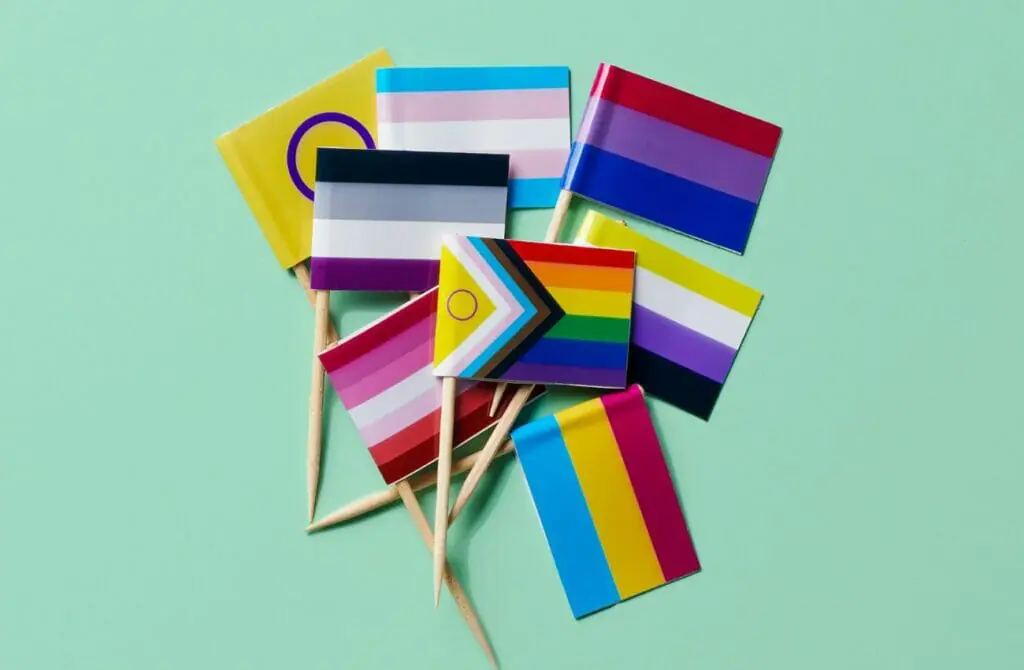
Trans Rights In Venezuela
Venezuela has a complex history concerning trans rights. From 1977 to 1998, the identity of trans people was legally recognized in the country. However, this recognition ended when the constitution was modified in 1998, under Chávez’s presidency. As of now, Venezuela does not recognize the rights of partnership or the identity of trans people.
Despite the absence of legal recognition, the growing tolerance for the LGBTQ+ community in Venezuela has helped empower local people. This cultural shift is what drives exciting changes and encourages conversations about LGBTQ+ rights in the country. It is essential, however, to remain cautious and vigilant, as situations can change quickly, and there may be individuals with harmful intentions. Always seek current advice before traveling, and stay informed about local developments.
For tourists, there may be different expectations and treatment compared to local LGBTQ+ individuals. It is crucial for visitors to stay aware of cultural nuances and be respectful of local customs. Depending on the region, local reactions and enforcement of the law may differ.
Steps that can be taken to protect yourself include staying connected with local LGBTQ+ communities, seeking advice from advocacy groups, and researching safe venues and areas. Joining online forums and social media groups can also provide valuable firsthand insight and support.
Some of the relevant LGBT advocacy groups in Venezuela include the Inter-American Commission on Human Rights (IACHR), which has called on the Venezuelan state to recognize the rights of LGBTI people and eradicate discrimination. Staying informed about these organizations and reaching out to them when necessary can provide crucial help and guidance. Remember, situations can change at any time, so it is always best to err on the side of caution and remain vigilant.
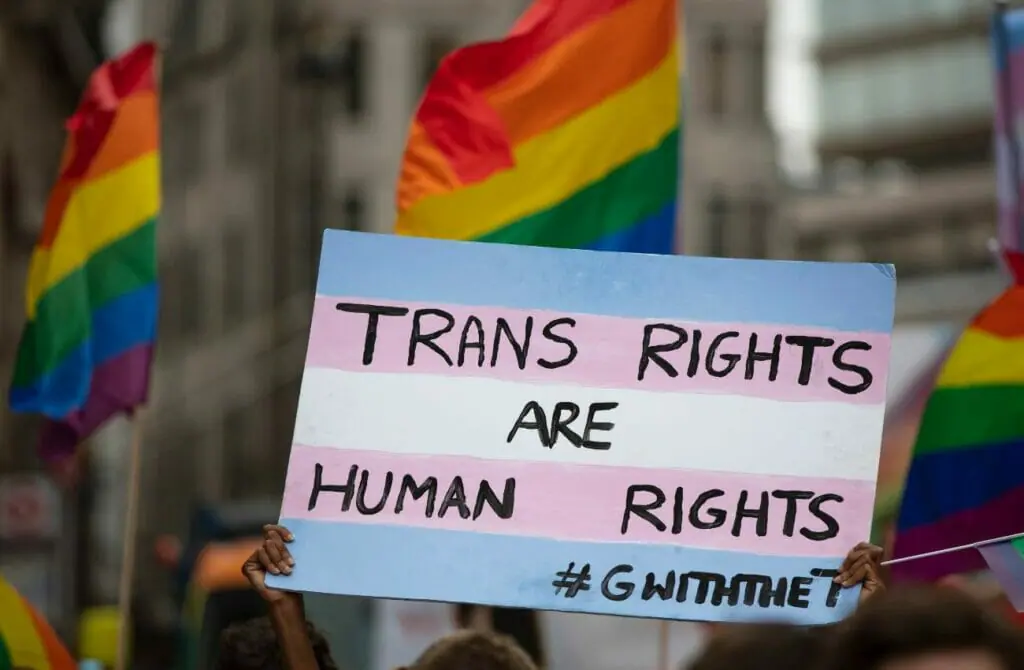

The Future For The Queer Community In Venezuela
Venezuela has experienced a significant humanitarian crisis that has made it challenging to prioritize LGBTQ+ rights issues. However, recent developments show signs of a more inclusive future for the local LGBTQ+ community. In May 2023, the National Assembly acknowledged the distinct impact of the crisis on the LGBTQ+ community and called for their right to healthcare without discrimination. This acknowledgment seems promising and initiates a step towards a brighter future for LGBTQ+ individuals living in Venezuela.
The situation for tourists may differ from the local people, as tourists are often subject to the same laws and regulations as the locals. However, while homosexuality is legal in Venezuela, it is essential for travelers to be aware of the local customs and culture. Stay informed about the current situation for LGBTQ+ individuals before traveling and seek reliable advice to ensure a safe and enjoyable trip.
Several steps can be taken to protect oneself while navigating as an LGBTQ+ individual in Venezuela. Remain vigilant and always prioritize safety regardless of the country or context. Stick to well-known establishments and locations, and avoid potentially unsafe situations or environments.
It’s vital to remember that situations can change rapidly, and information may become outdated. Always seek current local advice and stay updated on the latest developments regarding LGBTQ+ rights.
Lastly, connect with local and international LGBT advocacy groups, such as the Inter-American Commission on Human Rights (IACHR), which has called on the Venezuelan state to guarantee the rights of the LGBTI community. By staying involved with these organizations and supporting their work, individuals can contribute to a more inclusive and hopeful future for Venezuela’s LGBTQ+ community.
The journey may be challenging, but the future is promising as we move towards a world that respects and values the rights of everyone, including the LGBTQ+ community.
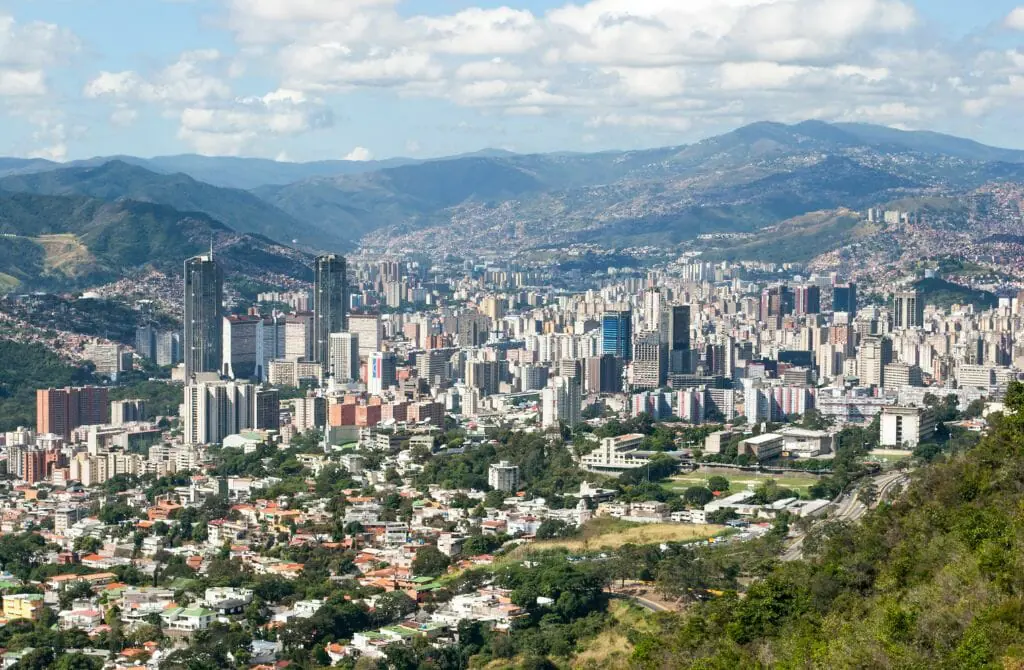
Protect Yourself While Travelling In Gay Venezuela
As an excited traveler exploring Venezuela, it’s important to be aware of the local context regarding LGBT rights to ensure a safe and enjoyable experience. Although same-sex sexual activity is legal in Venezuela, same-sex couples and households headed by same-sex couples are not eligible for the same legal protections as their opposite-sex counterparts. Additionally, same-sex marriage and de facto unions have been constitutionally banned since 1999.
When visiting Venezuela, you should remain vigilant, as the situation regarding LGBT rights can change rapidly, and information may become outdated. Always be cautious, and make it a priority to seek current advice before traveling. While most Venezuelans are friendly and welcoming, it’s important to keep in mind that there are always bad actors in every country, so err on the side of caution and ensure your safety.
In order to protect yourself as an LGBT individual, consider connecting with local advocacy groups. Organizations like Venezuela Diversa and Red LGBTI de Venezuela can provide valuable information about your rights and the current political climate.
As a tourist, you may not be subjected to the same challenges that local LGBT individuals face, but it’s crucial to remain informed and respectful of the local context. By doing this, you can enjoy exploring the exciting and diverse culture of Venezuela while also promoting a safe and inclusive environment for everyone. Remember, situations can change quickly, so always stay informed and prioritize your safety as an LGBT traveler in Venezuela.
